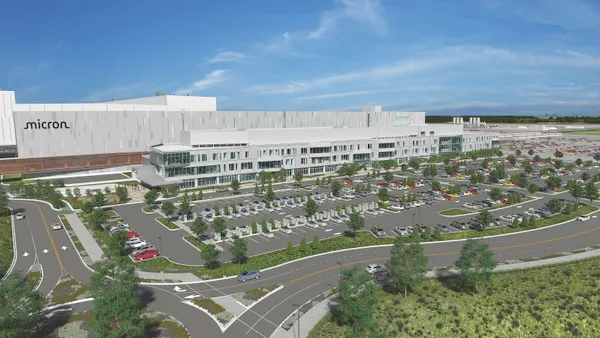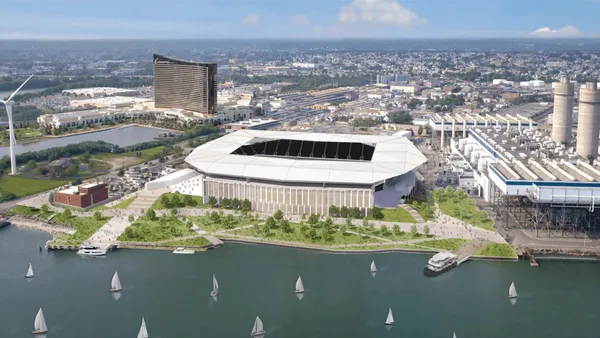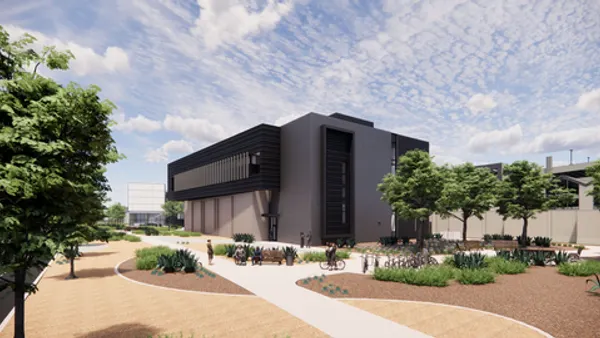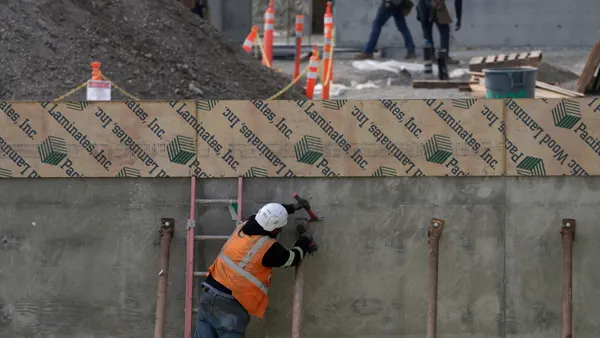Dive Brief:
- The Los Angeles Planning and Land Use Management Committee unanimously approved a revised Frank Gehry design for a five-building, mixed-use development on the city's iconic Sunset Strip on Wednesday, according to Curbed Los Angeles.
- Developer Townscape Partners agreed to reduce the height of the tallest building from 234 feet to 178 feet, make the development's sidewalks wider and decrease the number of residential units but, at the same time, increase the percentage of affordable ones. The company also agreed to install new bus stops and shelters, pay for traffic officers, as well as install speed bumps to prevent increased traffic on neighboring residential streets.
- The Los Angeles City Council is expected to approve the commission's decision next week, despite continued neighborhood opposition, according to The Los Angeles Times.
Dive Insight:
Gehry is also the creative force behind Facebook offices in Menlo Park, CA, and Seattle. He is credited with developing the minimalist, industrial look for the social media giant with features like concrete floors and exposed ductwork. And like the Sunset Strip project design, Facebook's 960,000-square-foot Menlo Park expansion plans drew criticism from local residents. In order to appease city officials and neighbors, Facebook agreed to an impressive basket of community benefits in exchange for a 20-year development rights deal and a waiver of height restrictions.
Los Angeles has seen a few proposals in recent months for urban-style, high-density developments that aim to create distinct neighborhoods within the city limits. However, the move toward "megadevelopments" has spurred the city council to look to Los Angeles residents for guidance as to how easy — or hard — it should be to get these projects built.
The Neighborhood Integrity Initiative, which would impose a two-year ban on the kind of zoning these massive developments need, is on the city's March 7 ballot. The measure has proven to be controversial, with proponents claiming that the regulation is needed to prevent overcrowding, traffic jams and reduce developer influence in city planning. Critics say that Los Angeles residents are desperate for housing and that these kinds of developments would help keep prices from continuing to climb.











